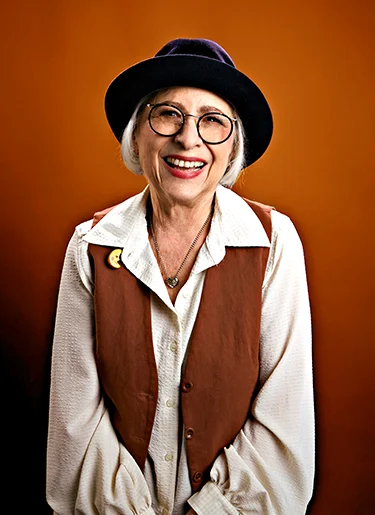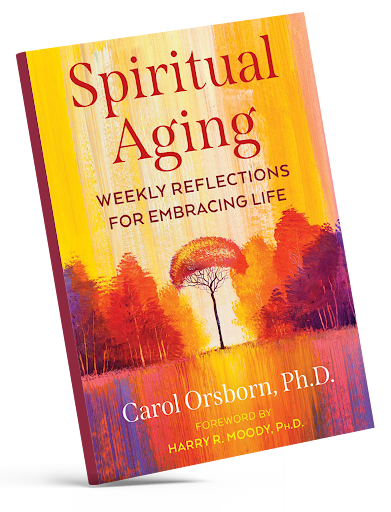Since I was a teenager, I’ve been challenging the norms. This is no surprise since a rebellious spirit, coupled with insatiable curiosity were hallmarks of the Boomer generation, those of us in our 50’s to 70’s who are now bringing that same spirit to aging.
It was in this spirit that I left my career in public relations at its peak to embark on a second career as a professor. But first, I needed the degrees. At 47, I started on a path that culminated with a doctorate in religion. My concentration was life stage, adult and spiritual development: basically how we change and grow over time.
I am the first to admit that I found the idea of aging daunting and I was hoping that academia would have something to say about reaching the peak of human development in older age, discovering the meaning of life along the way. But somewhere in the course of my studies, I came to realize that the ageism that permeates contemporary views of aging actually have their roots in academic theory.
As it turns out, the defining body of life stage development theory, from Jean Piaget to Lawrence Kohlberg, focused primarily on childhood and adolescence, only occasionally touching upon the transition to midlife let alone beyond. Pretty much anything beyond 45 was viewed as an addendum, at best—a wasteland devoid of meaning.
This notion of aging as a slow, sad decline, however, was not matching my experience. I was passionate in my pursuit of answers, thriving in the university environment and eager to take my search for meaning back into my own hands. It took years more to figure out a better theory to capture how aging was turning out for me. In a nutshell, what I came up with is that aging is like an extreme sport. It’s not for everybody. But if you’ve got the taste for it, while many are applying their brakes on life to be safe, protected, careful, others have tapped into a place that instead relishes the sensation of flying down the hill.
Of course, there are the normal physical losses and limitations aging brings our way. But midlife is the developmental life stage and time to start asking yourself the bigger questions: How am I going to live the rest of my life? Am I willing to take on the risk of being fully alive? Have I prepared myself to live aging as life culmination, even in the face of challenges? Aging as extreme sport requires a combination of attributes. Whether “spirited” or “spiritual”, the end result is the same: living age as enlargement not diminishment.
Some of the attributes are:
- Master the basics. Learn from those who have learned to embrace life to the full including those who are faced with challenges that are unwanted. Take their retreats, read their books, hang out with them. Let yourself be mentored and inspired.
- As the mystics say, learn to be more curious than afraid. Be willing to experiment…pushing your spiritual and psychological boundaries.
- Trust that being fully alive is what makes life worth living. Don’t be foolish—but do take risks and if there are consequences, know it was worth it. For some, this may mean climbing a mountain but the extreme sport for others will be chair yoga or simply learning how to relax and enjoy life.
- Don’t worry yourself over what other people think. And especially, don’t compete or compare. Aging as extreme sport is the ultimate freedom.
As for me, at 76, I choose to face whatever’s next with throwing my hands up in the
air crying “Wheee” all the way to the finish line. For we are part of a generation that is used to rewriting the script, and aging is no exception.
-Carol

Carol Orsborn, Ph.D., is a leader in the conscious and spiritual aging movement and author of more than 36 books for and about the Boomer generation including of Spiritual Aging: Weekly Reflections for Embracing Life (Inner Traditions, December 10, 2024). Dr. Orsborn leads The Spiritual Aging Study and Support Group housed at spiritualaging.substack.com. She earned her Masters of Theological Studies from Vanderbillt Divinity School and her Doctorate in the History and Critical Theory of Religion from Vanderbilt University. Dr. Orsborn has served on the faculties of Georgetown University, Loyola Marymount University, and Pepperdine University. Grandmother of 2, she lives with her husband of over 50 years in Madison, Tennessee, and Toronto, Ontario. https://carolorsborn.com/

